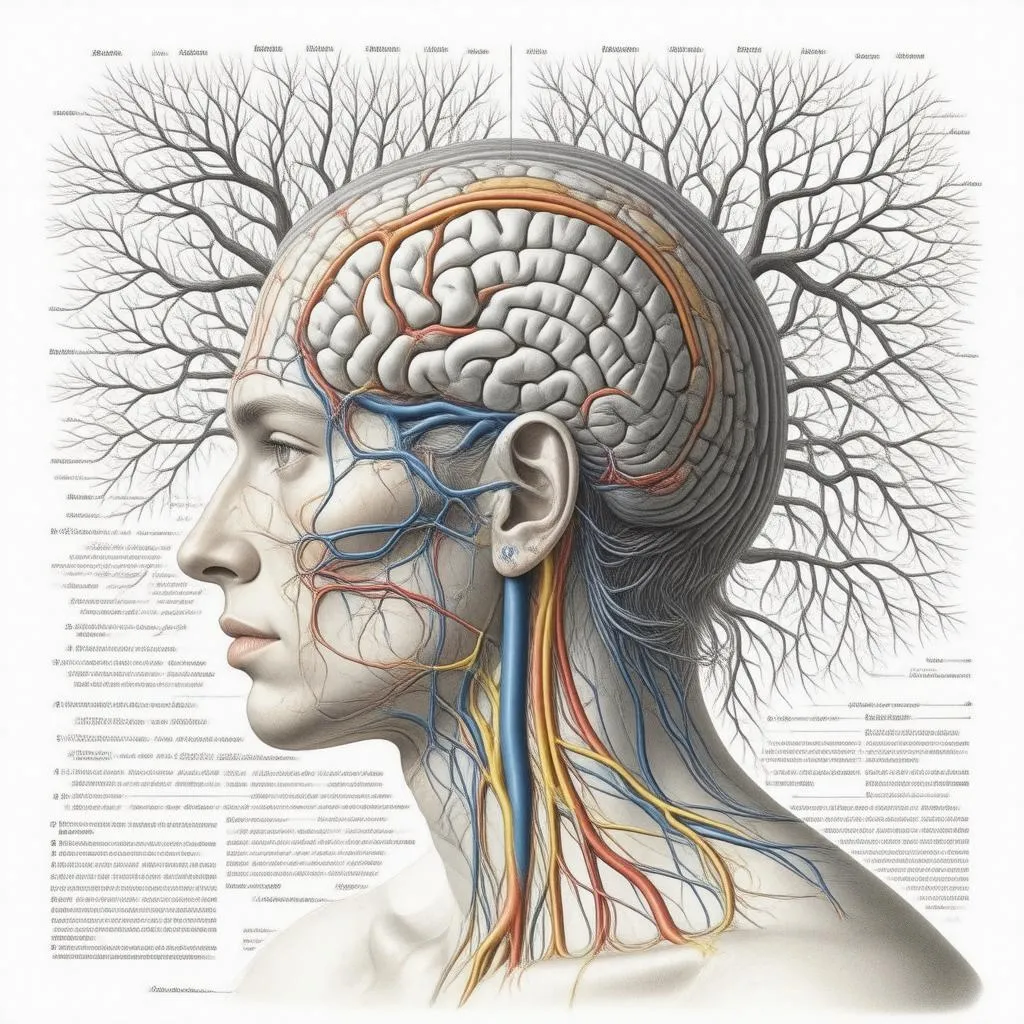The health of the nervous system is crucial for overall well-being, cognitive function, and emotional stability. Recent research has focused on various factors that can enhance nervous system health, including diet, exercise, mental health, sleep, neuroprotective agents, and emerging technologies. This report summarizes key findings from recent studies in these areas.
1. Diet and Nutrition
Recent studies have highlighted the impact of nutrition on brain health.
- Mediterranean Diet: A study published in Neurology found that adherence to the Mediterranean diet is associated with a reduced risk of cognitive decline and dementia (Scarmeas et al., 2006). This diet emphasizes fruits, vegetables, whole grains, fish, and healthy fats, which are rich in antioxidants and omega-3 fatty acids.
- Omega-3 Fatty Acids: Research in the American Journal of Clinical Nutrition indicates that omega-3 fatty acids can support cognitive function and may have neuroprotective effects (Yurko-Mauro et al., 2010).
2. Exercise and Physical Activity
Physical activity has been shown to have significant benefits for brain health.
- Neurogenesis and Neuroplasticity: A study in Frontiers in Neuroscience demonstrated that regular aerobic exercise promotes neurogenesis and enhances neuroplasticity, leading to improved cognitive function (Kramer & Erickson, 2007).
- BDNF Levels: Research published in Neuroscience Letters found that exercise increases levels of brain-derived neurotrophic factor (BDNF), which is essential for the survival and growth of neurons (Zoladz & Pilc, 2010).
3. Mental Health and Stress Management
Mental health plays a critical role in maintaining a healthy nervous system.
- Mindfulness and Meditation: A meta-analysis in Psychological Bulletin found that mindfulness meditation can reduce stress and improve cognitive flexibility, which is beneficial for brain health (Khoury et al., 2015).
- Stress Reduction: Chronic stress has been linked to neuroinflammation and cognitive decline. A study in Nature Reviews Neuroscience emphasizes the importance of stress management techniques in promoting brain health (McEwen, 2007).
4. Sleep and Circadian Rhythms
Quality sleep is essential for nervous system health.
- Memory Consolidation: Research in Nature highlights the role of sleep in memory consolidation and cognitive function, indicating that sleep disturbances can lead to neurodegenerative conditions (Diekelmann & Born, 2010).
- Circadian Rhythms: A study in Current Biology discusses how disruptions in circadian rhythms can negatively impact brain health and cognitive performance (Hastings et al., 2003).
5. Neuroprotective Agents
Ongoing research is exploring various compounds that may protect the nervous system.
- Antioxidants: A study in Free Radical Biology and Medicine suggests that antioxidants can mitigate oxidative stress and protect neurons from damage (Halliwell, 2006).
- Pharmacological Treatments: Research is ongoing into pharmacological agents that may offer neuroprotection in conditions like Alzheimer’s disease. A review in Nature Reviews Drug Discovery discusses potential therapeutic targets (Cummings et al., 2016).
6. Technology and Neurostimulation
Advancements in technology are leading to new treatments for neurological disorders.
- Transcranial Magnetic Stimulation (TMS): Studies have shown that TMS can improve symptoms in patients with depression and other neurological conditions (George et al., 2010).
- Deep Brain Stimulation (DBS): Research in The New England Journal of Medicine indicates that DBS can be effective in treating movement disorders and may have neuroprotective effects (Huang et al., 2017).
7. Gut-Brain Connection
Emerging research is examining the relationship between gut health and brain health.
- Gut Microbiome: A study in Nature Reviews Neuroscience suggests that a healthy gut microbiome may influence brain health and cognitive function, potentially reducing inflammation (Cryan et al., 2019).
Conclusion
Recent research has provided valuable insights into various factors that can enhance nervous system health. Interventions such as dietary changes, regular exercise, stress management, quality sleep, and emerging technologies show promise in promoting cognitive function and overall well-being. Continued research in these areas is essential for developing effective strategies to support nervous system health.
References
- Cummings, J. L., et al. (2016). “Alzheimer’s disease drug development pipeline








Leave a Reply